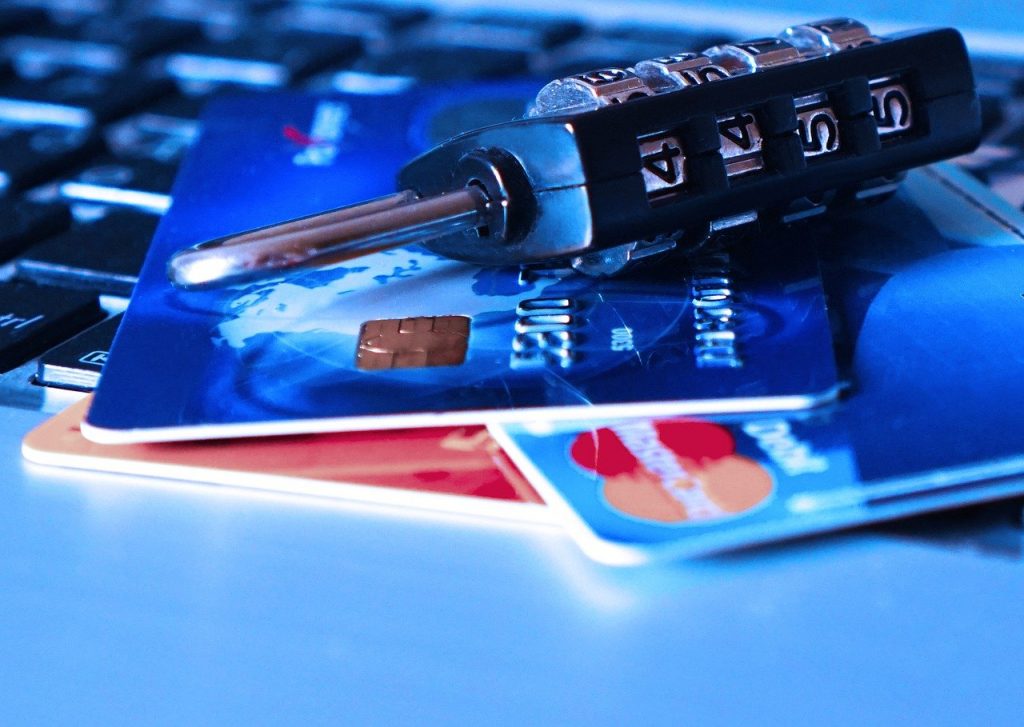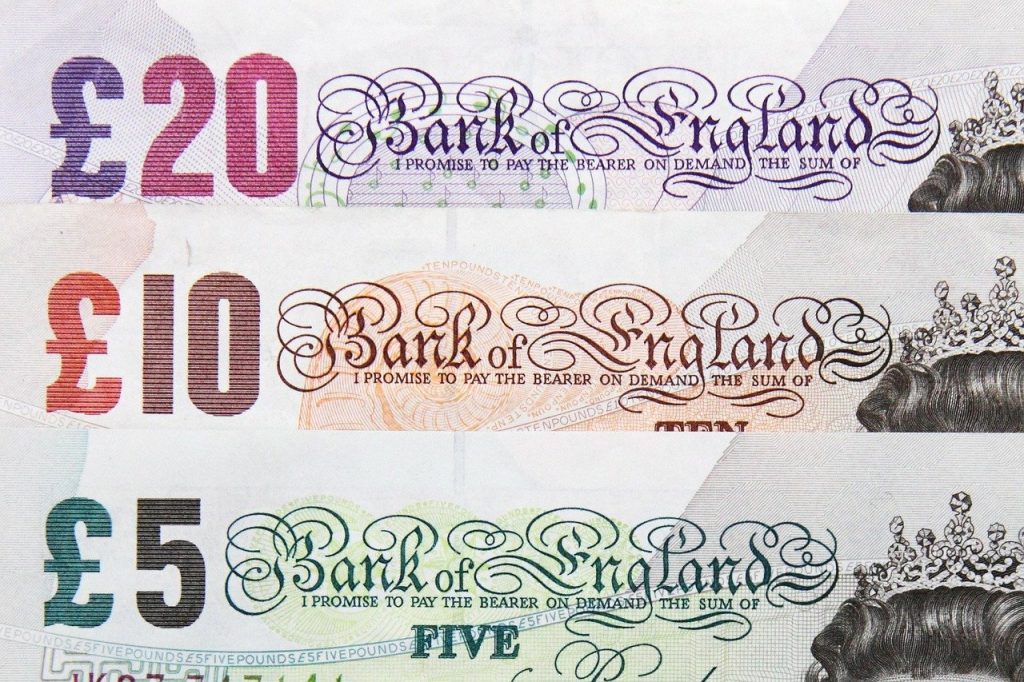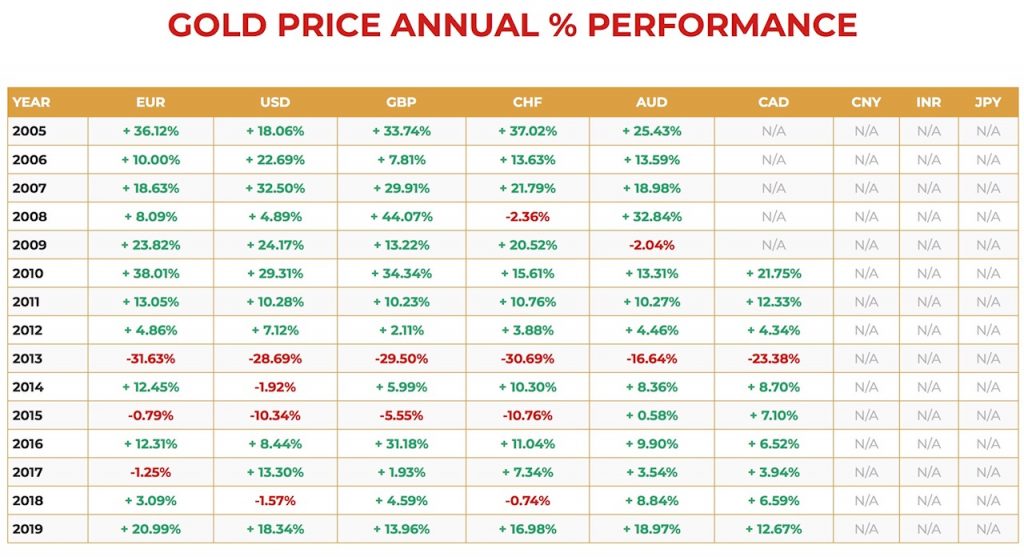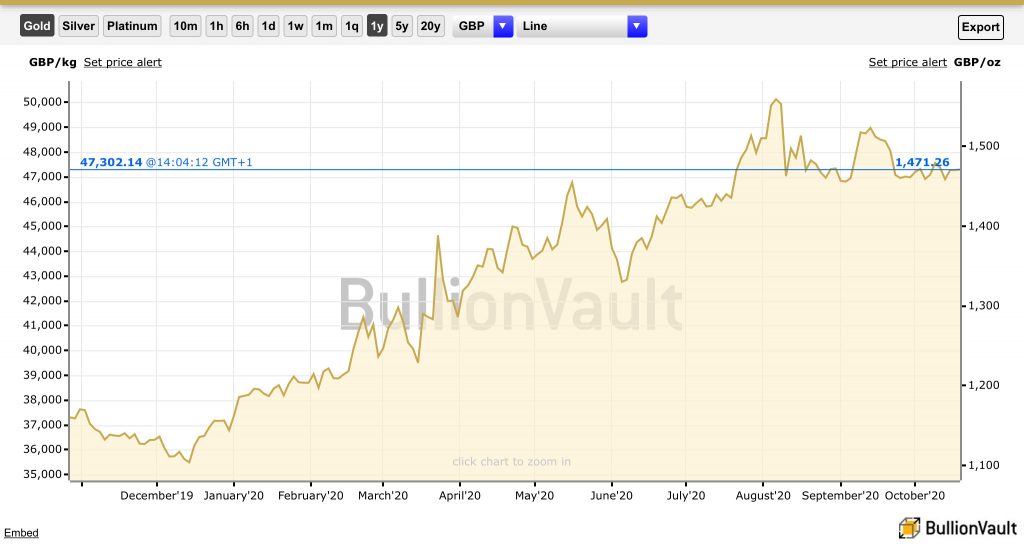Table of Contents
Gold vs Savings account.
For many people who want to save their hard earned money, they immediately think that saving money in a bank account is the most sensible and safest option.
However, is saving money in a bank account really the smartest or even the safest option?
Often, people might think saving money with gold is more of a risk, but is this actually true?
The Bank of England’s Monetary Policy Committee, the MPC, have currently decided to maintain the headline interest rate of 0.1%, which is still the lowest rate in the banks 325 year history.
Due to the huge and growing amount of national and corporate debt, it seems interest rates are not going up anytime soon.
Average savings rates are now the lowest on record.
According to moneyfacts.co.uk UK average saving rates have fallen to the lowest levels on record.
On average, rates across all types of traditional savings products such as easy access accounts and easy access ISA’s have fallen.
In August 2020, data from the Moneyfacts Treasury Report reveals an average easy access account rate of only 0.22%, and an average easy access ISA rate of 0.32%.
0% interest on your savings.
Not only are savings rates at the lowest on record, some accounts now have 0% interest rates.
TSB have already announced that they will no longer pay any interest on its ‘Classic Plus’ current account from December. Therefore, the interest rate will be 0% (Source moneyexpert.com).
Soon you will pay the bank to save your money.
The Bank of England is now hinting towards the possibility of introducing negative interest rates next year if the UK economy continues to struggle.
Negative interest rates already exist in the Eurozone, Sweden, Switzerland and Japan.
In theory, negative rates would aim to boost the economy by encouraging consumers and banks to take more risk through borrowing and lending money.
However, in reality, if commercial banks have to pay negative interest rates to central banks, they will eventually have to pass this cost on to their customers, i.e. you, by charging you to have a savings account.
Is your money even safe in a bank account?

Money saved in a bank account is subject to counterparty risk.
Any bank could fail, and with the current economic crisis, this is becoming more and more likely. (Think of Northern Rock for example).
Bank Bail-ins.
Bank bail-ins are becoming more of a threat during these uncertain times.
Financial pressures on banks are huge and this could lead to some banks becoming insolvent.
The European Union introduced the Bank Recovery and Resolution Directive in 2014.
When a bank becomes insolvent, the bank’s creditors (you with your savings account) and shareholders would pay the costs through a bail-in type mechanism.
When you deposit your savings in a bank, you are essentially an unsecured creditor of the bank.
Your savings could be seized to save the bank in the case of a bank becoming insolvent.
The FSCS (Financial Services Compensation Scheme) risks.
Technically your savings are covered by the FSCS (Financial Services Compensation Scheme).
It covers up to £85,000 of any savings you hold in each official UK financial institution.
If you have more than £85,000 in your account, then under this scheme you would not be covered for any amount greater than £85,000, which is an obvious risk.
You also have to question the viability of the FSCS itself.
Some financial experts believe that the FSCS only has enough money to cover a mere 1% of all deposits currently in UK bank accounts.
Therefore, in theory, if one or more of the major banks were to go bust, this would have a knock on effect and the FSCS by default would immediately be insolvent.
Gold is money, fiat is credit.

When you put your money in a bank account, you are essentially putting your time worked, your wealth and your faith in fiat currency.
Fiat currencies are all based on credit, not expended labour, and are completely reliant on credit.
Fiat currency is actually a government promise, a promise to pay the face value of notes and coins, and is pretty much based on your confidence in the ability of the government to maintain a sound economy.
You should, therefore, be able to retrieve your wealth at any time in the future.
However, with fiat currency that wealth is continuously being eroded over time.
Physical gold bullion has been a strong and reliable store of value for centuries.
Inflation.

Inflation eats away at fiat currency.
The inflation rate of the UK pound sterling (GBP) from year 1960 to 2020 is a staggering 1829%.
Therefore if you were to buy an item for £1 in 1960 that same item would cost the equivalent of £19.29 in 2020, an annual average inflation rate of 4.97% (source www.inflationtool.com).
Inflation is the slow and gradual killer of paper currency wealth.
Fiat currencies eventually go back to their intrinsic value, zero.
There is no historical precedence for a fiat currency that has succeeded in holding its value.
Therefore, until now, with the exception of some countries’ currencies converting to other fiat currencies such as the euro, every fiat currency in history has gone to its intrinsic value of zero.
Currency vs Gold.
Believe it or not, currency used to be backed by a real asset, gold.
You could actually convert your paper currency into the equivalent value of gold.
This was called the gold standard. It was a promise made by the Bank of England and by the U.S. government.
In 1971, president Richard Nixon ended the U.S. dollar convertibility to gold, which essentially ended the Bretton Woods system. This made all major currencies around the world enter into a full fiat currency system, including the UK pound sterling.
No country today pegs their currency to gold, which means governments and central banks can essentially print as much fiat currency as they want.
Gold maintains your purchasing power.

GoldBroker offers direct ownership of gold and silver outside of the banking system.
Purchasing power refers to the amount of goods and services that a unit of currency can buy.
The value of gold has increased at an exponentially higher rate than the value of UK pound sterling, the dollar and most of the worlds fiat currencies.
In essence all major currencies have depreciated over time relative to gold.
Read more about the purchasing power of the pound sterling compared to gold here.
Gold can never go to zero.

BullionVault lets private investors around the world access the professional bullion markets. You can benefit from the lowest costs for buying, selling and storing gold and silver.
The price of gold might rise and fall in line with market dynamics and the forces of demand and supply, but the inherent value of gold can never drop to zero.
Gold cannot simply be created out of nothing as with fiat currency.
There is only a finite supply of gold, which gives gold a unique value.
The production process alone to get just 1 ounce of gold requires huge amounts of time and effort.
The cost of exploration, production, refinement, delivery, and security, all add to why gold has inherent value.
Gold is accepted globally.
Gold is universally recognised as a store of value.
It is universally accepted as payment, gold is a valuable asset that you can use in transactions or convert to local currency, irrespective of your location in the world.
Gold is private.
Depending on how much gold you buy, gold is a much more private form of preserving wealth.
Physical gold is one of the very few truly private investments available today.
Technically, nobody has to know how much gold you have.
Bank accounts however, are a public matter, governments can easily track or freeze your accounts.
Converting gold back to fiat currency.
When you require fiat currency, it is fair to say that gold is a liquid assets that can be traded on an open market and exchanged into fiat currency very easily whenever you wish to do so.
Conclusion.
With various commercial banks under huge amounts of financial pressure, with mounting defaults and looming negative interest rates, many savers are receiving little interest on savings accounts while technically taking on escalating risk.
With interest rates paying as little as 0.5%, fiat currency is struggling to maintain suitable purchasing power.
Whereas those who have been saving their wealth in the form of physical gold, have seen the price of gold steadily increase in value, maintaining and even increasing their purchasing power over time.
Disclaimer: The articles or blog posts on this website are for general information/opinion purposes only and does not constitute either goldandsilveruk.co.uk or the author(s) providing you with legal, financial, tax, investment, or accounting advice. You should not act or rely on any information contained in the articles without first seeking independent professional advice. Care has been taken to ensure that the information in the articles are reliable; however, goldandsilveruk.co.uk does not represent that it is accurate, complete, up-to-date and/or to be taken as an indication of future results and it should not be relied upon as such.
The site goldandsilveruk.co.uk will not be held responsible for any claim, loss, damage, or inconvenience caused as a result of any information or opinion contained in these articles or blog posts and any action taken as a result of the opinions and information contained in these articles or blog posts is at your own risk. All rights reserved www.goldandsilveruk.co.uk
This website/blog may generate revenue through paid sponsorships, advertising, paid insertions and affiliate partnerships.
goldandsilveruk is a precious metals enthusiast who wants to give authentic, clear, simple, transparent information and opinion to readers. Compensation may influence advertising content, topics or posts made on the blog. However, all paid and/or sponsored content and advertising space and posts would be identified.
All facts and claims made in posts should be independently verified with the manufacturer or provider. If a conflict of interest exists in the content, it may not always be identified.
Changes made to the policy will be identified on disclaimer page and in the general privacy policy and T&C.

